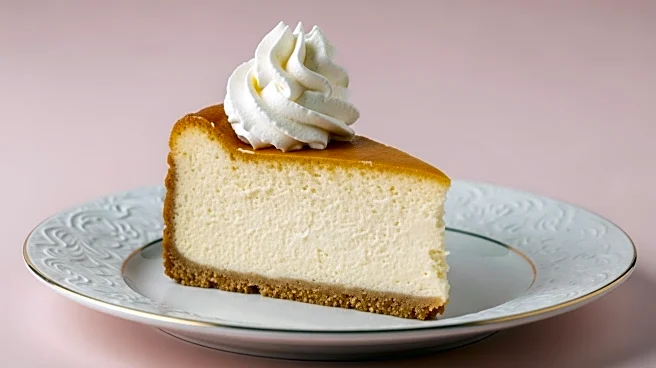Cheesecake is a dessert that has captivated dessert lovers for centuries. Known for its creamy texture and rich flavor, cheesecake is made primarily from cream cheese, eggs, and sugar, often with a graham cracker crust. Its history dates back to ancient Greece, where it was possibly served to athletes during the Olympic Games. Today, cheesecake is enjoyed in various styles, including the lighter Japanese version, showcasing its versatility and enduring popularity.
Core Facts
Cheesecake is traditionally made with cream cheese, eggs, and sugar, creating a smooth and heavy texture. It often features a graham cracker crust held together by melted butter. Sour cream may be added to make the filling easier to shape, and fruit flavorings like strawberry, blueberry, or lemon are common additions. Cheesecake is often topped with fresh fruit or chocolate.
Notable Details
Cheesecake's origins can be traced back to ancient Greece, where cheese making began around 2000 BC. The dessert was mentioned by Athenaeus in the 100s AD, referencing a book by Callimachus about the art of making cheesecakes. Cheesecake may have been given to athletes during the Olympic Games, which started in 776 BC.
Comparisons and Contrasts
Cheesecake has evolved into various styles, including the dense and creamy New York-style cheesecake and the lighter Japanese version. These variations highlight the dessert's adaptability and global appeal. While New York-style cheesecake is known for its richness, Japanese cheesecake offers a fluffier alternative.
Key Data Points
Cheesecake is often thought to be part of American cooking, but its history spans centuries and cultures. The dessert's versatility is evident in its numerous adaptations, from traditional recipes to lighter versions. Cheesecake's enduring popularity is a testament to its universal appeal and adaptability.

 Discover Daily
Discover Daily 








